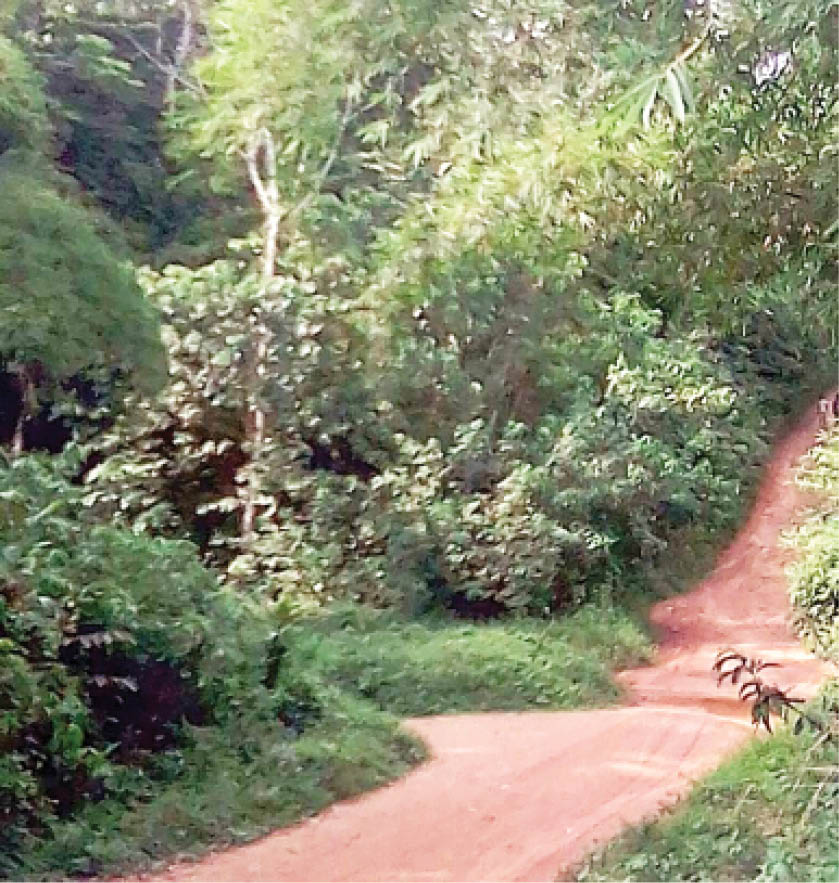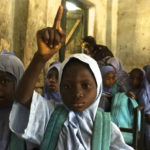The crisis between Cameroonian authorities and a group agitating for a separate country to be known as Ambazonia, is having effects on some parts of Nigeria, especially the border communities in Cross River State. Daily Trust on Sunday reports how the ‘Ambazonian Boys’ and Cameroonian soldiers enjoy unhindered access to Nigerian territories, especially communities in the forests.
The relationship between Nigeria and Cameroon has been fragile since the struggle for and loss of Bakassi. The mild contention between both countries over location of pillars to indicate international boundary in Danare communities in Boki Local Government Area of Cross River State in recent years also attracted international attention.
- s pay billions of naira to DisCos despite frequent outages
- Abduction: Protesters cause gridlock on Kaduna-Abuja Highway
Now, another attention is being attracted as reports indicate that people who live in forests in the state occasionally see Cameroonian spies, as well as Ambazonian fighters, who are making efforts to liberate the southwestern part of that country.

According to a Cameroonian youth leader in Danare 2, a graduate of Labour and Industrial Relations, Mr Emmanuel Enu, more than 10,000 migrants and refugees, many of who are undocumented, live in Danare 1 and 2, while thousands more spread throughout many Nigerian border communities.
He revealed that a good number of them include those that have escaped from the refugees camps in Ogoja in Cross River State, ostensibly because of hardship, poor or non-payment of the monthly allowances by the United Nations High Commission for Refugees.
According to villagers, some of these undocumented migrants include disguised members of the so-called Ambazonian Boys fighting the Paul Biya government in the southwestern Cameroon to achieve independence.
Findings in Danare and other villages confirmed that the Ambazonian Boys freely move into the border communities as other Cameroonians who fled from insurgency. They come in to relax, frolic, buy or sell goods and mingle with their kith and kin in the Nigerian side since most of them share the same ancestry and affinity, the villagers said.
They speak the same language, inter-marry and share common tradition. As a result, since there are no immigration checkpoints in the thousands of forest tracks, both Nigerians and their Cameroonian biological brethren move in and out of their territories without identification. For instance, in both Danare 1 and 2, which are forest communities in Boki Local Government Area of Cross River State in Nigeria, casual visitors will hardly distinguish between a native Bokye person or his Cameroonian counterpart.

It takes less than an hour to trek through the thick forests into the deserted surroundings of Cameroonian villages.
It takes over an hour to access Danare communities from the popular Cocoa Town of Ikom in central Cross River, mostly by motorbike. You would go through Etung Local Government Area, which also partly shares boundary with Cameroon, into the Bashua communities of Boki Local Government Area. Accessibility from here is now very difficult. There are no more tarred roads through the thick forests. Motorcyclists charge a minimum of N1,500 to do the tortuous, bumpy and dangerous ride. Yet there are communities in these forests, where most of the fleeing Cameroonians take refuge.
Emmanuel Enu is one of the Cameroonian refugees in Danare 2. He is less than 40 years old and insists that he is an Ambazonian, not Cameroonian. He blamed some African countries and the European Union for their woes.
He said, “Those of us living in Nigerian borderline villages are uncountable. In Danare 1 and 2 alone, we are over 10,000. We are spreading out because the United Nations High Commission for Refugees (UNHCR), which used to give the documented refugees N7,200 per month now gives N3,200, and this hardly comes anymore. What can such do for us in Nigeria, which already has her own economic crisis? That’s why many have left the Ogoja refugee camps into the bushes. Even though our hosts do not disturb us, we can never be comfortable, having been forced to flee, abandoning our means of livelihood.’’
The chairman of Cameroonian refugees in Bashu, Mr Osang Moses, said they were facing a lot of security challenges, even from their own people. According to him, “Anytime we are asked to go and collect our small stipends from the United Nations (UN), they will arrest us on the way, even if we show them our refugee identity cards. But in Bashua community, we are received well. We are more than 2,000 persons currently living in Bashu. We cannot go back to our villages in southern Cameroon because soldiers are shooting and killing our people in the bush. The UN and the Nigerian government should look into this matter and solve this Ambazonian problem so that things will return to normalcy for us.’’
The village head of Oshie Agbor in Danare 2, Chief Raphael Ayuk Ogar, said even though the Cameroonian liberation fighters would not come into Danare with arms, they move freely and mingle with the people.
Chief Ogar said, “As the head of Oshie Agbor, I doubt sighting armed Cameroonian fighters infiltrate my village. But I am aware that many fled into our communities for safety. They do not bring their conflict into our communities or attack our people. Many of them are also Boki like us. However, the separatist fighters are usually confronted if they take our Danare route to return to their farms, villages, or to Mamfe town in Cameroon. It is the separatists that disturb their own natives.’’

A shop owner and resident of Danare 2, Mr Wilson Agbor, said Ambazonian soldiers infiltrated Danare and other communities. He mentioned how they reclaimed Bodam community from them. “In 2017, we even fought with the Cameroonians for claiming Bodam lands as their ancestral heritage. From Bodam, it is two miles into Cameroon. I can confirm that the Ambazonian boys come here often to relax, womanise and get drunk. Nigerian soldiers have cautioned them never to get drunk here and cause trouble,’’ he said.
Perhaps, because of the reported incursion of the Amba Boys or to check a possible spillover of the conflict into Nigerian border communities, the authorities in Nigeria established the Forward Operating base in Danare, manned by heavily armed soldiers.
The base, located beside the impassable and tortuous forest routes to Danare 2, a bungalow of two flats, serves as office and home for the soldiers.
When our correspondent visited the base, some of the Nigerian soldiers could be seen walking about in the community, though without their rifles. Their presence reinforces confidence amongst the people in the forests. Normal life situations are taking place; the village setting is there. You could see young men playing cards, music, drinking, women cooking behind their ramshackle houses and children running about. People are bathing and fetching water from the nearby small stream, which is a stone throw to the base.
At the Forward Operating base, our correspondent, his guide, Mr Boulos Philip, who is a native of Bashua and the hired okada riders, were stopped at the fortified checkpoint. There were six armed soldiers, some were reclining while others stood. They fixed their gaze at our correspondent, who wanted to secretly take some pictures.
Asked how they were coping, one of the soldiers said, “We are managing the situation here in our own way.’’
“God is the one securing us,’’ another soldier said when asked about the security situation in the community.
An official of the UNHCR who pleaded anonymity said they were paying documented refugees in the Ogoja camp as approved, as well as taking care of those in various camps.

He said he was not aware that many had deserted the camps due to hard times occasioned by reduction in their monthly stipends or lack of care.
Early last year, authorities in the Cross River State Emergency Management Agency, in conjunction with the UNHCR, told journalists in Calabar that there were well over 35,000 refugees in the state.
They also said that as the conflict persisted, they expected more refugees in the state.
Princewill Ayim, the director-general of the State Emergency Management Agency (SEMA) said, “We have extended lots of goodwill, hospitality and warmth to our brothers from Cameroon. But their number and daily influx by the day, especially through the border communities, are impacting much on the economy of the state.’’
Bothered by the number of documented and undocumented refugees, as well as the Bakassi Peninsula debacle, the state governor, Professor Ben Ayade, cried to the federal government some time ago, asking it to create a special status for the state.
He had raised the alarm that there were at least 30 illegal routes in his state, some of which arms passed through to support the insurgency in Cameroon and cause insecurity in his state.
“I have said it over and again that the federal government should look again at the plight of Cross River State, which bears the full weight of the burden of the war in Cameroon. We are a state with international boundary with fragile situations. There are more than 30 illegal routes where illicit arms flow into Cameroon, and this accounts for the security crisis we shoulder in the state,’’ he said.
An indigene of Danare, Ojong Peter, said the community needed immigration checkpoints, as well as more presence of security personnel in the forest communities, including a police station and barracks.
“This demand is necessitated by the constant invasion by Cameroonian soldiers in hunt of Ambazonians. In nearby Cameroon villages, when their soldiers shoot we are filled with fear, so we need more of our security men here,’’ he said.

 Join Daily Trust WhatsApp Community For Quick Access To News and Happenings Around You.
Join Daily Trust WhatsApp Community For Quick Access To News and Happenings Around You.
